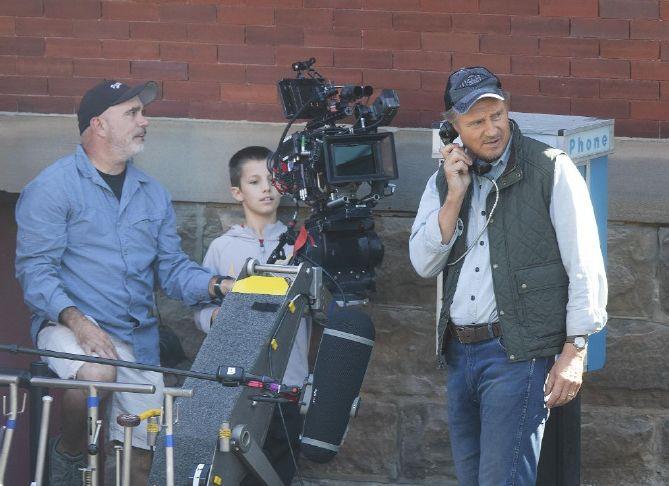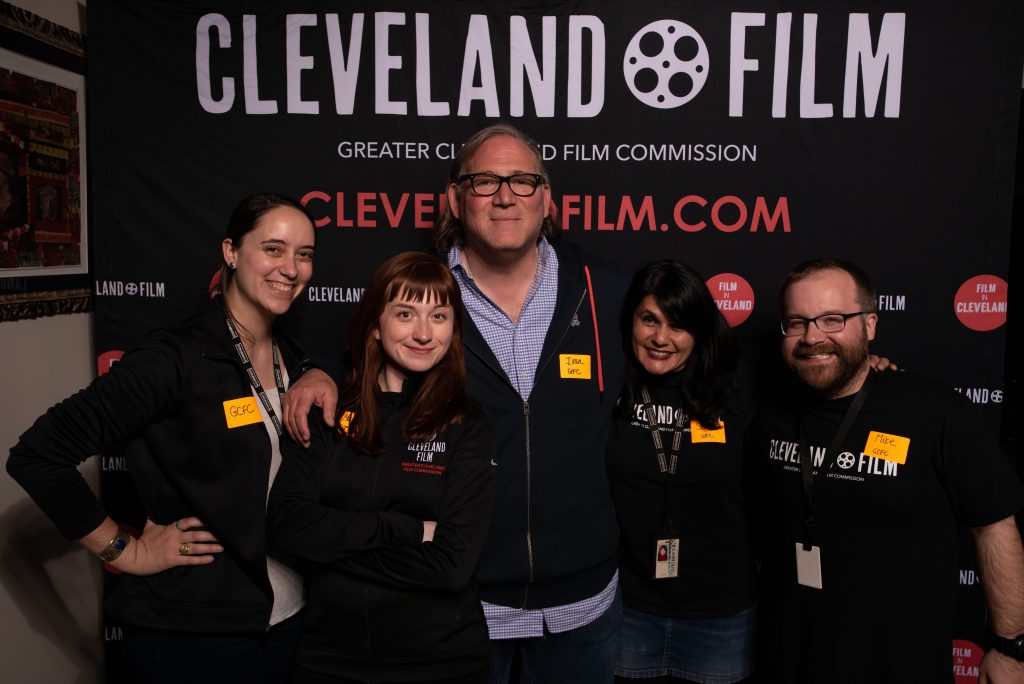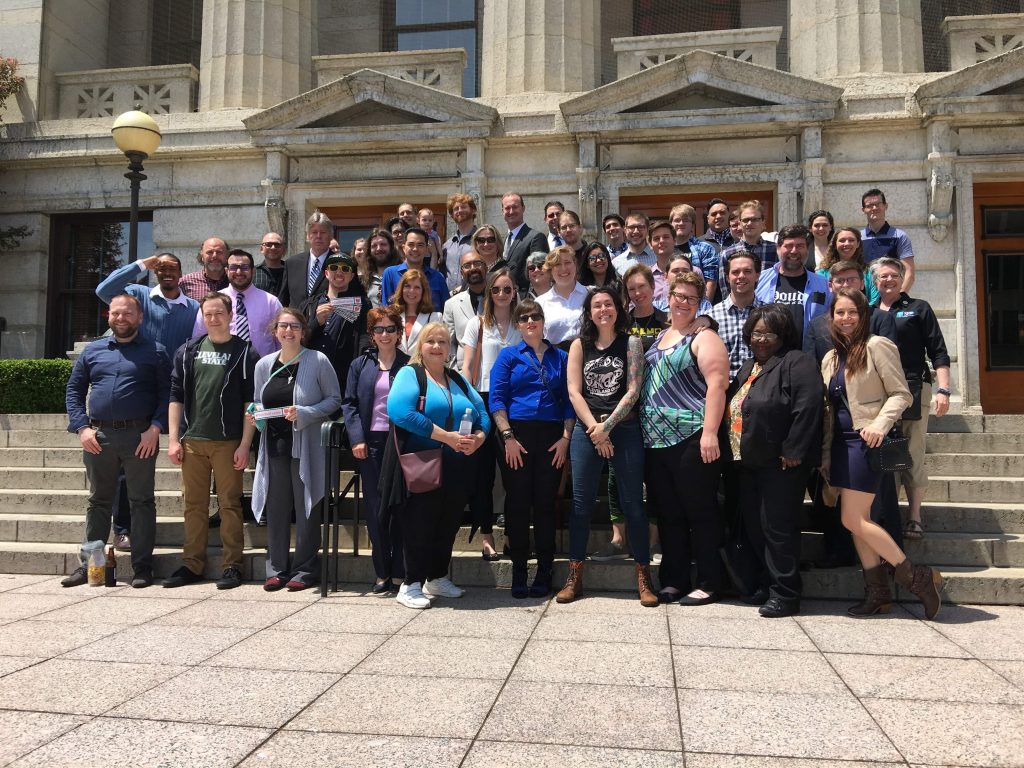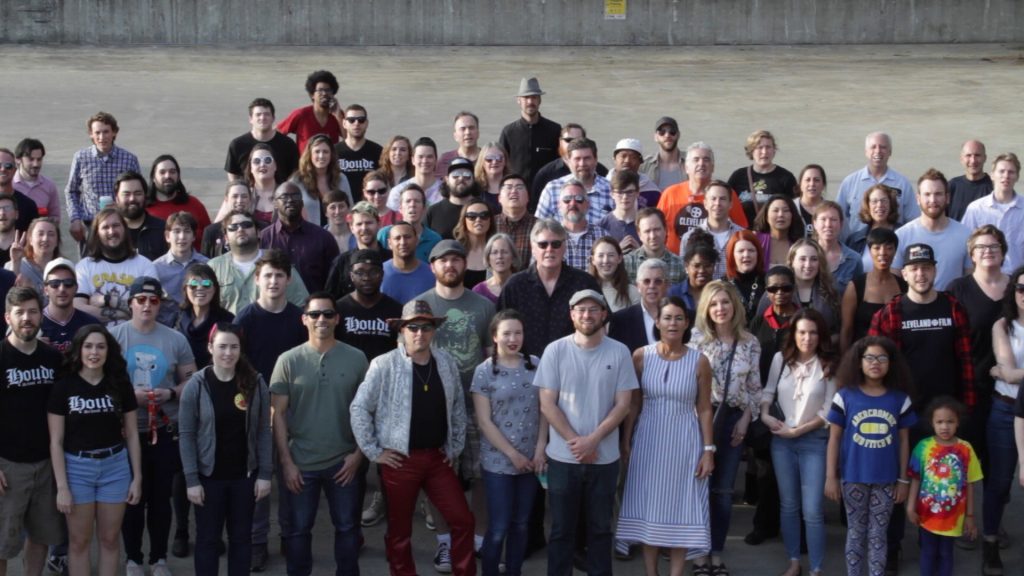Source: CSU Cauldron • Nick Hawks
November 19, 2019
Thanks in large part to the Greater Cleveland Film Commission (GCFC), Liam Neeson got to showcase his special set of skills (stop me if you’ve heard that line before) in Northeast Ohio, filming the movie, “The Minuteman.” Neeson, who stars in the film as a rancher who ends up defending a young Mexican boy on the run from the cartel, was spotted all over Northeast Ohio from September to late October, when production wrapped. The film takes place largely in Arizona and Chicago. In fact, none of the scenes from the film actually take place in Northeast Ohio at all. So why film it here? According to Mike Wendt, a Production Coordinator with the GCFC, it’s all about customer service.
“Our job at the Cleveland Film Commission is to make sure films come here,” Wendt said over a telephone interview with The Cauldron. “They were also considering other cities, so we try going above and beyond and giving them a lot of options.”
Cleveland has become a hotspot in recent years for mainstream film, with blockbusters such as “The Avengers,” “Captain America: The Winter Soldier” and “The Fate of the Furious,” filming key scenes in the city. Wendt detailed how the process of bringing in a film goes down, as he was the first one from the GCFC to read the script for “The Minuteman.”
“Usually how it works at the commission is we’re in touch very early in the process,” Wendt said. “We’ll read the script and scout locations to give them a sense of what they get when they’re here. The director, Rob (Roberto Lorenz), and the other producers drove around for a couple of days, and they started to get a semblance of what they could do here, and not just in Cleveland, but Northeast Ohio.”
Filming took place in not just Cleveland, but Wellington, Hudson, Parma and Kent. One of the big draws to the area is how just half an hour from downtown there are several rural spots that are good for filming. If you’re asking yourself how Cleveland could possibly double for Arizona, you’re not alone.
“The first few weeks of the film were actually shot in New Mexico,” Wendt said. “In Northeast Ohio, you can cover most geographical locations, but two things we lack are desert and mountains.”
Neeson isn’t the only Hollywood star to grace Cleveland with his presence. If in recent weeks you’ve bumped into Joe or Anthony Russo on the Cleveland State University campus (co-directors of a small indie film you’ve probably never heard of, “Avengers: Endgame”), it’s not by coincidence, as they’re also in town shooting their film, “Cherry,” starring Tom Holland. The film shooting here almost never happened, as the Ohio legislature removed the $40 million Motion Picture Tax Credit that had been bringing movie production to the state since 2009. Production on all filming in Cleveland was put on hold.
“It was pretty scary because there may not have been use for our offices if the tax incentive wasn’t around,” Wendt said.
The Russo brothers considered shooting in California, but they had trouble finding places that looked like Cleveland locations. Natives of Cleveland, they had their heart set on filming in Northeast Ohio, and fortunately in July, Ohio reversed their decision and extended Cleveland’s film tax credit. Wendt has lofty goals for the future to ensure this doesn’t happen again.
“The goal is to try and get it raised to a higher annual amount, up to $100 million,” he said. “For this year, we’re almost tapped out, and we want to have flexibility in case something comes through in the last minute.”
Wendt added that he also hopes to put a longer agreement in place, from the two-year-plan they have now up to five years.
According to his IMdB page, Wendt has been credited with 14 different job titles in the film industry, from acting and writing to being a location scout. He offered advice to Cleveland State students that are majoring in film.
“Embrace the time you have at CSU,” he said. “There’s gonna be a lot of opportunities that’ll come your way. I’ve met with many professors there and spoken at classes and they’re passionate, so don’t ever feel like you’re bothering them if you have a question.”
Wendt also encouraged students to reach out to him personally.
“I’m here at the commission as a resource as well. Lots of time our focus is large-scale productions, but I’ve also had several CSU students hit me up about locations and getting things for their projects, and I’m happy to do that. It’s something I want people to know. We’re here to help, and we just wanna keep seeing the film community grow here, and that includes the Cleveland State film school.”
Wendt has big-time aspirations, as he one day hopes his years of experience as a location scout will make him an attractive choice for a film producer.
If you’re a Cleveland State film student, Wendt is the kind of contact you should take advantage of. You can contact him via email at mwendt@clevelandfilm.com.













